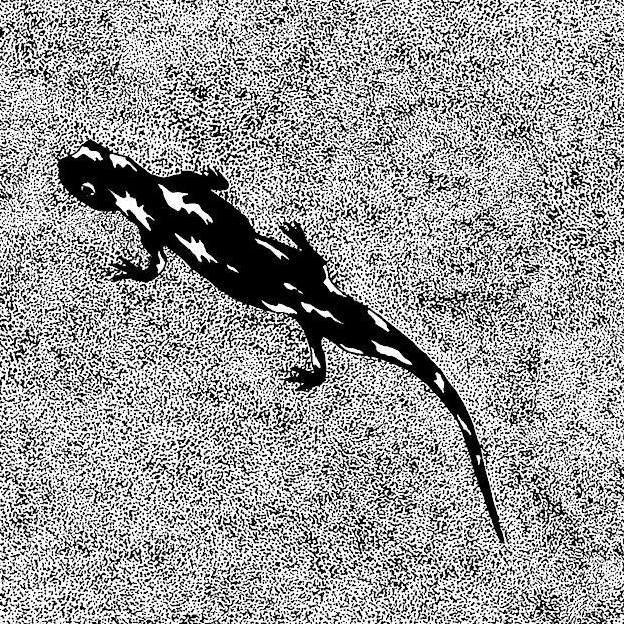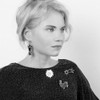almanac-fire: that sense

We are constantly searching for the boundaries of our experience, and if ordinary language is rough ground, then while writing we are the negotiating constellations, removed and cast off into zero gravity.
To write means to mark your body suspended and rejected above the ground, whose meaning is transformed into a touch — random, like in the game in which players imperceptibly pass an object from hand to hand (and the tagger tries to guess who has it). This subject is sense, but it has no sense. It, rather, has non-sense, and the movement that it sets and in which it opens up — is the very principle of mobility and the production of possible variations (it is always not here, it runs across). Gertrude Stein wrote: “Everything is the same except composition and as the composition is different and always going to be different everything is not the same” [1]. In a diverse world, produced by combinatorial games (we always change roles, pass the baton, throw balls, questions and exclamations to each other), this sense becomes that sensorial ability (that sense is that feeling). Arbitrary experience, which can be deceiving, inconsistent, unstable and doubtful, existing exclusively in real time is the object of this susceptibility. No structure, in particular, linguistic, can actually produce it. Although it is the experimental object that maintains the performance of this structure.
And in this sense, poetry and music have related foundations (as opposed to logical and linguistic perspectives). Poetry interacts with the elements of discourse and the techniques of their combinations, radically deviating from the conventional framework, crossing the line of articulacy — it speaks the excess of language, according to S. Voegelin, who presented her article as the central theoretical material of this issue of the almanac-fire. This excess is potentially included in language as “the blind spot, the floating signifier, the value degree zero, the off-stage of absent cause” [2]… It is the poetic utterance that is carried out in shaky underground of the language and is characterized by the “absence cause”.
Stubbornly invisible in itself, but at the same time an opaque moving sound creates worlds that are correlated with the possible worlds of literature (hidden potentialities): we move into them as a temporary home taking the form of sonic physical entities that at the same time perceive ourselves, sensitive to our own variability. Inhabiting this house, we do not fully live in it: we look out the window and see strangers (us?) walking along the promenade. And then we write: this loss, which is the separation of the subject, non-recognition, which is far from abstract, it will materialize to the level of grass, water surface, stones.
Listening, we live by the logic of the material that creates the world that we hear, no matter how contradictory this materiality is, no matter how plural this sound may be. In the same way, poetic discourse reflects its elusive materiality, merging with music at the upper limit of the rhythm and speech with the lower limit, while interacting with our bodily rhythm (breathing, pulse, steps, blinking eyelids).
At that moment when the word loses its content and becomes sound, as the poet and musician R. Clervaux argues in an interview specially prepared for our almanac, it’s lack of reason (like the absence of denotation), on the one hand, gives it the density of matter, and on the other, motivates its nomadism. In poetical and musical collaboration, the worlds of fiction find their ultimate physicality, lasting materiality, putting ourselves in “being-between-places”: “Somewhere between just-being-there, as a first person observer, and being almost-not-there… like a ghost” (Clervaux). This is like a dream that no one knows about (only a dream gives us this feeling of “no one knows”), but being inside of it, it is possible to share it with someone else. In his introductory essay to the almanac I. Kurbakov writes: “The happening of ‘here” of writing and “now’ of sound turn out to be an instrument for removing / revising borders and changing relations with the current civilizational paradigm. I see my friends, illuminated by these ecstatic moments of the acquired time, wandering in the wilderness of the shared dream”.
Music and poetry are co-dreamers who invite us to join them. Here we will burn books together [3]. To burn disciplinary custodianship of art, institutional knowledge, to set fire to the organization of cultural thinking, academic interpretation, authoritative opinion, we will gather around the fire of ignited metalanguage volumes.
However, complicity is not limited to us (whoever “we” may be). It is always open. The world is just being created. The first text score by K. Shirokov begins with a poetic instruction on the behavior of the eyes: “change your focus: examine all objects at a distance of one to two to five meters from you // close your eyes for a minute, two or five, carefully consider the visual images that arise when the eyelids are closed”. Thus, the sound space and the poetic space, which in cooperation enhance their articulation, inevitably meet with the visual, which, in truth, they never leave, but which they illuminate every time in a new way. So, the poems of P. Zarutsky and E. Mnatsakanova are visual, to the same extent that they are musical and poetic. The two components activate the third, which the figure in the poem of E. Mnatsakanova displays. In an essay dedicated to her work as a resonance of poetry and music in each other and published in this issue, V. Feshchenko remarks: “The hand gesture depicted on one of the handwritten sheets of her Requiem is the embodiment of multimodality: this is the pianist’s hand lifted above the keys and the hand a typewriter on the keyboard, and the hand of a graphic artist rubbing the coal on the paper”. Or, as P. Zarutsky writes in his auto-comment: “Two inevitably equals three. Word and graphic sign. Word and sound”.
But this visuality of a different order — it represents the invisible, just like an inaudible sound appears in the audible, and the non-articulated in the poetic articulation.
Possible worlds called from the backstage behind the scenes affect the degrees and modes of oscillation of reality and allow us to explore its alternative. These worlds, these dreams: what are we when we are no longer ourselves? Artists of our own fading tracks, listeners of each other’s non-stop metamorphoses. That meaning, that sense.
Ekaterina Zakharkiv
English version is edited by Joan Brooks
1 Gertrude Stein. Composition as explanation, 1926: https://yaleunion.org/secret/Stein-Composition-as-Explanation.pdf?fbclid=IwAR3M9AsTiVnGRUrmn584BBLknqGUHBcodXhFKpzBwO7yOud6ASnxs-UJ9VY.↩
2 J. Deleuze. The Logic of Sense, quoted from A. Badiou. Deleuze: The Clamor of Being, trans. by Louise Burchill // University of Minnesota Press, 2000.↩
3 “It is the role of the lovers is to set fire to the book”. M. Plamer. Thread // New directions, NY, 2011
